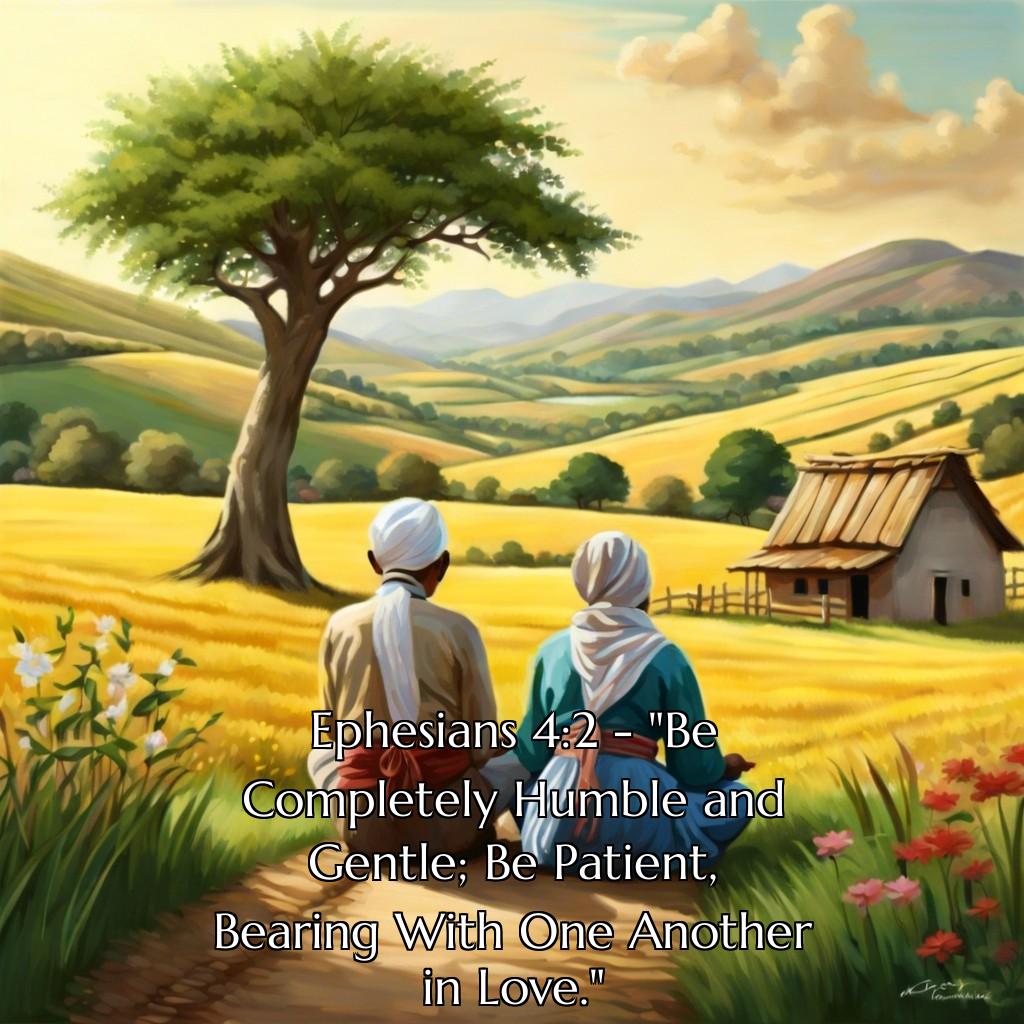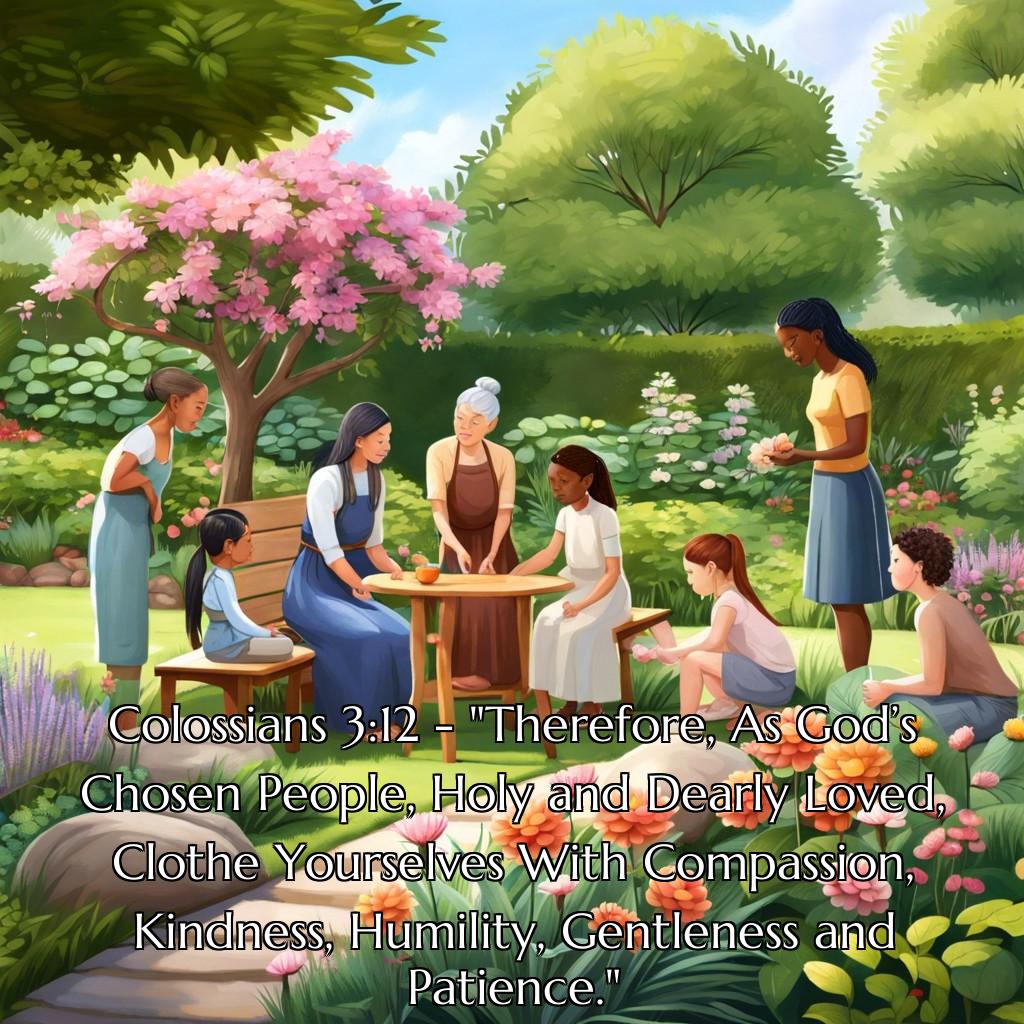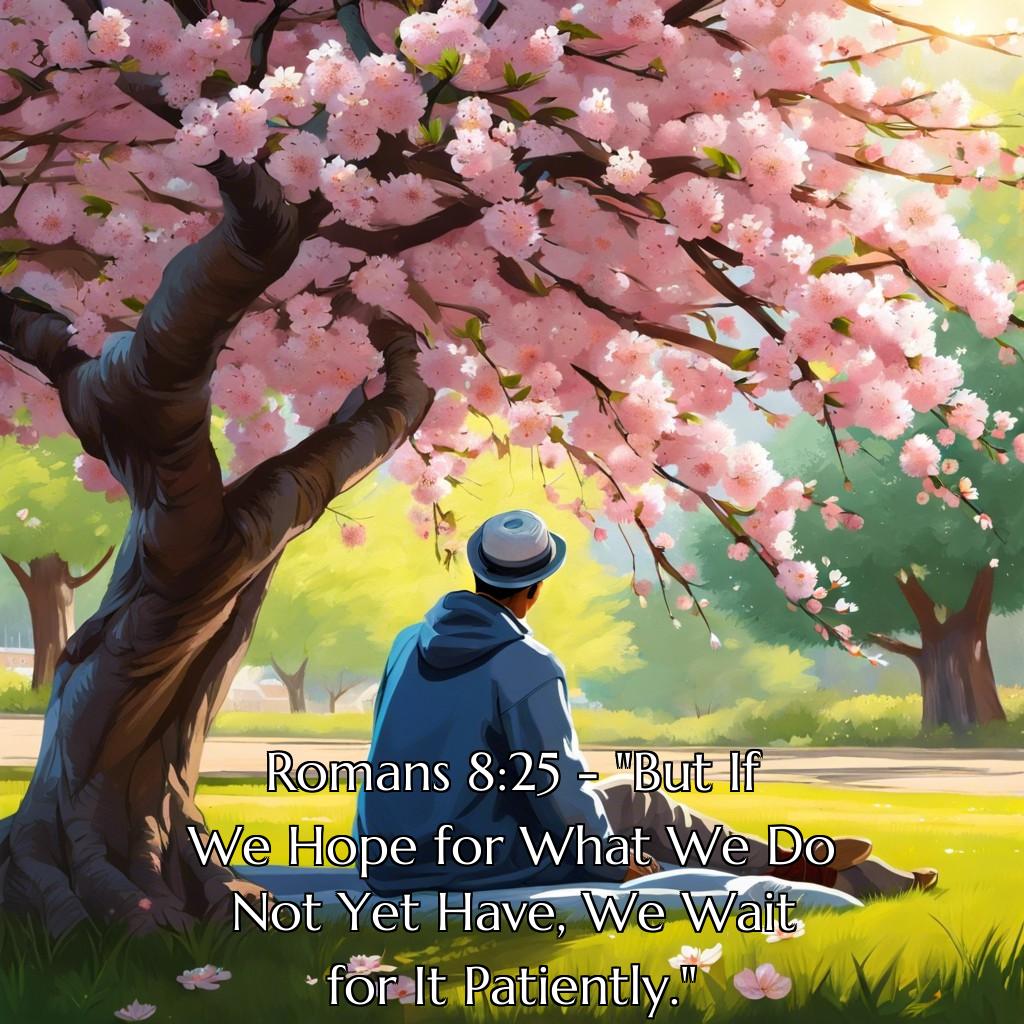This article provides insights on ten Bible verses that teach valuable lessons about patience.
Navigating life’s challenges often requires a profound sense of patience, a virtue the Bible speaks about extensively. If you’re seeking wisdom and strength to cultivate patience in your daily walk, you’ve come to the right place. Here, you’ll find carefully selected verses that delve into the essence of patience, offering insights for practical application and spiritual growth.
Proverbs 14:29 – “Whoever Is Patient Has Great Understanding, but One Who Is Quick-tempered Displays Folly.”

Patience leads to understanding. A calm, patient person can thoughtfully assess situations and respond wisely. Their patience allows them to see beyond immediate emotions and impulsive reactions.
Conversely, quick-tempered individuals often act without thinking. This impulsiveness can cause mistakes, misunderstandings, and regrettable actions. Anger clouds judgment and hinders rational decision-making.
Being patient reflects emotional maturity and wisdom. It fosters healthy relationships and promotes peaceful interactions. Quick tempers, on the other hand, often lead to conflict and foolish behavior.
In essence, patience isn’t just a virtue – it’s a gateway to deeper understanding and harmonious living.
James 1:3-4 – “Because You Know That the Testing of Your Faith Produces Perseverance. Let Perseverance Finish Its Work So That You May Be Mature and Complete, Not Lacking Anything.”

Faith is often tested through life’s challenges. This testing brings about perseverance. Perseverance isn’t just enduring; it’s growing stronger. It’s like refining gold.
- Perseverance builds character. Each trial is an opportunity to grow.
- Maturity comes from consistent perseverance. It’s a journey, not a sprint.
- Completeness in faith means not lacking in spiritual strength. Trials are spiritual workouts.
This process is about spiritual development. Over time, this leads to becoming complete in faith, equipped to handle life’s ups and downs. It also implies trusting God’s timing and methods. Faith tested is faith strengthened, leading to a more resilient and mature spiritual life.
Ephesians 4:2 – “Be Completely Humble and Gentle; Be Patient, Bearing With One Another in Love.”

Patience ties closely to humility and gentleness in this verse. Here, patience isn’t just a passive waiting; it’s actively bearing with others in love.
– Humility: Recognizing we aren’t above others helps us stay patient with their flaws.
– Gentleness: Treating others with kindness even when they’re difficult fosters patience.
– Bear with One Another: Understand that everyone has their struggles, and patience allows for a supportive community.
This verse encourages building relationships grounded in love, prioritizing patience, and recognizing the shared human experience.
Romans 12:12 – “Be Joyful in Hope, Patient in Affliction, Faithful in Prayer.”

This verse encapsulates a triad of Christian virtues that can guide one’s conduct and mindset.
Be joyful in hope: Embrace optimism even when circumstances seem bleak. Hope fosters joy because it looks beyond the present difficulties to the promises of God.
Patient in affliction: Endurance during trials is crucial. Patience can be a source of inner strength, allowing one to face hardships without becoming disheartened.
Faithful in prayer: Consistent prayer builds a deeper relationship with God. Prayer is a powerful tool to sustain one’s faith and seek guidance during tough times.
These principles are interconnected, creating a balanced and resilient approach to life’s challenges.
Psalm 37:7 – “Be Still Before the Lord and Wait Patiently for Him; Do Not Fret When People Succeed in Their Ways, When They Carry Out Their Wicked Schemes.”

This verse from Psalm 37 encourages us to “be still” before the Lord and to wait patiently. This calls for a tranquil and trusting spirit.
Firstly, being still means putting aside our anxieties and trusting God’s plan. It requires a conscious effort to rest in His presence and maintain inner peace.
Secondly, patience involves waiting for God’s timing rather than our own. It’s about having faith that He knows best.
Lastly, it advises us not to worry about the success of those who may act wickedly. Instead, focus on your own spiritual journey and trust that God’s justice will prevail.
These points remind us that true patience is an act of faith and trust in God’s ultimate wisdom and timing.
Colossians 3:12 – “Therefore, As God’s Chosen People, Holy and Dearly Loved, Clothe Yourselves With Compassion, Kindness, Humility, Gentleness and Patience.”

This verse calls believers to embody the virtues that reflect their identity as God’s chosen people. It emphasizes that patience is part of a package deal, interconnected with other virtues such as compassion, kindness, humility, and gentleness.
Compassion: Show empathy and care towards others. Understand their struggles and be willing to help.
Kindness: Act with goodness and a genuine concern for others, often going out of your way to support them.
Humility: Recognize your own limitations and value others equally. Avoid pride and arrogance.
Gentleness: Approach situations and people with a soft touch, ensuring your actions do not harm or forcefully impose on others.
Patience ties all these qualities together. It calls for enduring difficult situations and enduring people’s faults with a calm and forgiving heart. This verse suggests that these virtues work in unison to create a harmonious and loving community.
1 Corinthians 13:4 – “Love Is Patient, Love Is Kind. It Does Not Envy, It Does Not Boast, It Is Not Proud.”

Patience in love is more than just waiting; it’s an active choice to show kindness and understanding. When Paul speaks of love’s patience, he highlights its enduring nature.
Envy and boasting are replaced with contentment and humility. True love doesn’t compare or compete. Instead, it celebrates others’ successes without jealousy.
Pride, often a barrier to patience, is set aside. This allows for genuine, selfless connections. Being patient in love means valuing the other person’s needs and timing, quietly supporting them through highs and lows.
Ultimately, the patience described here is deeply intertwined with other virtues—kindness, humility, and a heart free from envy. This holistic approach fosters a love that’s steady and unwavering.
Galatians 5:22 – “But the Fruit of the Spirit Is Love, Joy, Peace, Forbearance, Kindness, Goodness, Faithfulness.”

Forbearance, or patience, is listed as a fruit of the Spirit, indicating it is a result of living in alignment with God’s will.
Patience is not just about waiting; it’s about how we behave while we wait. It calls us to exhibit grace under pressure, showing restraint even when circumstances are challenging.
Living by the Spirit means embodying characteristics like kindness and faithfulness alongside patience. These qualities together foster a harmonious and loving community.
Patience is interconnected with joy and peace, suggesting a deep inner contentment and trust in God’s timing. It emphasizes that patience is more than a virtue; it’s a transformative lifestyle.
Romans 8:25 – “But If We Hope for What We Do Not Yet Have, We Wait for It Patiently.”

This verse calls us to develop patience through hope. It reminds us that true hope isn’t about immediate gratification; it involves waiting, trusting, and believing that what is promised will come to pass.
Firstly, hope requires a vision of the future. Believing in something greater than your present circumstances provides comfort and strength.
Secondly, patience in waiting is cultivated by faith. Trusting in God’s timing rather than our own can be challenging but brings peace.
Finally, this patience teaches resilience. It builds character and deepens your relationship with God, knowing that His plans are worth the wait. Embrace this period as a time for growth and trust.
2 Peter 3:9 – “The Lord Is Not Slow in Keeping His Promise, As Some Understand Slowness. Instead He Is Patient With You, Not Wanting Anyone to Perish, but Everyone to Come to Repentance.”

God’s patience demonstrates His immense compassion. He desires everyone to come to repentance rather than face destruction. This concept is comforting and teaches us a few key lessons:
- Divine Timing: God’s sense of timing differs greatly from ours. What may seem slow to us, God uses to perfect His plans.
- Mercy and Grace: God’s patience is an extension of His mercy and grace, giving people many opportunities to turn back to Him.
- Hope: By being patient, God shows that He has hope in our potential for change and redemption.
These points highlight the depth of God’s love and the importance of being patient with others.





